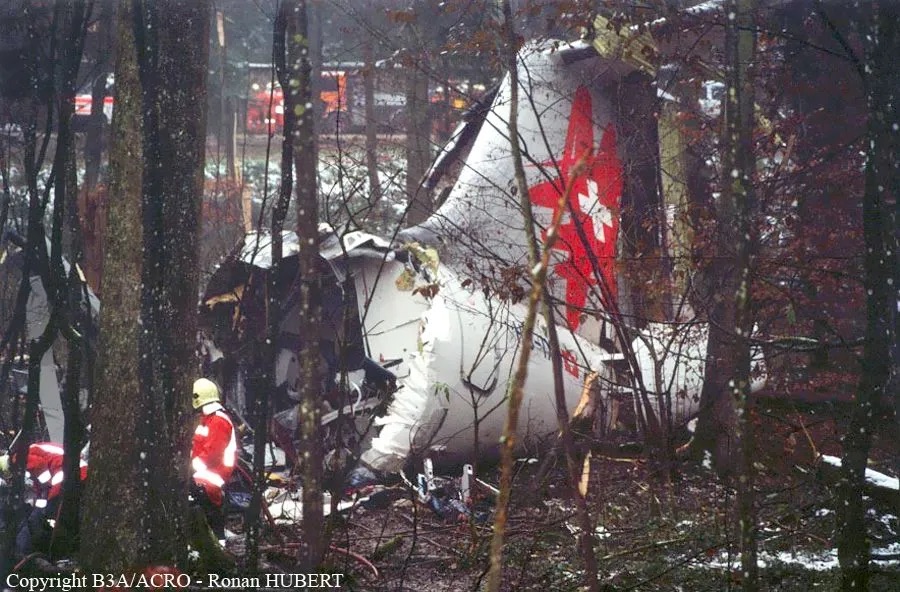Again, there’s something to be said about the differences between recreational and professional flying. Since my last notes on the matter that revolved around the fatal accident of N143FJ, I’ve had a few conversations with recreational pilots, professional pilots, and those of us in between both worlds. And while I take a few moments to analyze the differences between the two realms, I’m still trying to find something that occurs in one that benefits the other, and while I started this process attempting to bridge the gap between professional aviation and recreational flying, I know there’s opportunities on both sides to grow.
In 2001, the female half of the musical group La Bouche was killed in a plane crash. Melanie Thornton, one of many musicians on the flight, was taking a routine trip between Germany and Switzerland entrusting that the flight deck crew could and would accomplish the mission. And while there’s plenty of other more eloquent writers who have spun some yarns on this accident, the Swiss Büro für Flugunfalluntersuchungen (say that ten times fast) does an amazing job of gathering all the information on accidents that even those of you reading my words who know nothing about aviation could come out of reading the 162 page report with an understanding of instrument approaches, safety systems, and a genuine “huh” when reading about the late Captain Hans Ulrich Lutz and his interesting history.
Instead of going through Lutz’s troubled past, which included many check ride failures, attitude issues, and an errant disregard for safety, I want to focus on the First Officer, Stefan Löhrer. At less than half the age of Lutz, Löhrer had only 490 hours of flight experience, somewhat overshadowed by Lutz’ 19,500 hours. Through his short history as an aviator, the following from the Swiss Report interest me: “The psychodiagnostic report of an external test and assessment centre describes the copilot as, among other things, lively but not aggressive, sensitive, benevolent and seeking harmony. There was found to be a need for development in terms of self- confidence and personal maturity.”
One would not expect anything less from a young man at the age of 24 starting his career.
While both of these pilots had attended crew resource management training, the report later states that “the accident proves that the course contents had not been translated adequately into everyday practice.” And while there’s a similar opportunity for us to discuss the merits of speaking out against careless and reckless behavior in this accident just as in N143FJ, I think the implementation timeline of training, and, honestly, the “everyday practice” is more important to focus on in this 91/121 crossover.
Talking over this idea with one of my First Officers, the idea of habit patterns started to resonate. The power of procedures, and not for the sake of procedures, but the implementation of said procedures on a regular basis certainly helps establish a standard of normal. And then, those deviances from normal can be more easily recognized and attended to appropriately and timely.
But back to Löhrer, and honestly every other First Officer that endured flying with Lutz…why didn’t they speak out about this deviant behavior? Or, rather, if those deviances were mentioned, why didn’t Lutz make any appreciable change?
Putting ourselves in Lutz’s shoes, we could only hope that something could overpower an ego that left a record that doesn’t surprise you that he killed himself in an airplane. Putting ourselves in Löhrer’s shoes, we could only hope that something could overpower our own innate timidness to speak out about Lutz’s attitude. Additionally, we could only hope that Lutz and Löhrer were employed at an airline that not only had a system to handle reports of both good and bad behaviors, but to process them appropriately.
Modern day airlines call these systems Professional Standards programs. Usually run by the union and supported by management, Professional Standards serves as that conduit where pilots can help wayward pilots recognize their shortcomings and empower them with the tools necessary to change.
Generally for attitude issues (certainly relevant in Lutz’s case), I’m curious what an appropriate venue for recreational pilots would look like. Certainly, public shaming isn’t as constructive as my neighborhood facebook group thinks it is. And even if there was some process in place, do we as pilots have the humility to respond to the opinions of others as it relates to our flying habits?
Perhaps more than procedures such as flows and checklists becoming habit patterns to help us identify deviations from normal, we as pilots should work to find ourselves in communities and cockpits that are conducive to both positive and negative feedback, and humble ourselves as to not let that feedback either artificially increase our levels of acceptable risk or become a wall that prevents further communications from happening.
